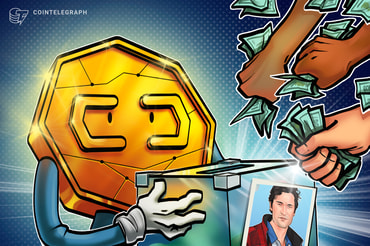France Votes for Hung Parliament as Major Parties Fall Short of Majority

France’s general election unexpectedly saw a left-wing coalition, the New Popular Front, win the most seats on Sunday, but the group fell short of a majority in the National Assembly contest, leading to a hung parliament that could make forming any new policy, including crypto regulations, harder.
The coalition won 188 seats – 289 are needed for a majority – while President Emmanuel Macron’s centrist Ensemble coalition now has 161 seats. National Rally (RN), the far-right party associated with Marine Le Pen, came third with 141 seats according to Politico data.
After the results came out France’s Prime Minister Gabriel Attal, who is from the Renaissance party, said he would hand in his resignation to Macron but the French president asked him to stay in the role.
“The President has asked Gabriel Attal to remain prime minister for the time being in order to ensure the country’s stability,” Macron’s office said in a statement, Reuters reported. CoinDesk also reached out for comment.
Politicians from several parties including Macron’s Renaissance party began strategically cooperating after the first round of voting last week resulted in the right wingers securing the largest share of the vote. Third-placed candidates withdrew from the race in an attempt to prevent the anti-RN vote being split.
The result is likely going to make passing legislation, including new crypto regulations, much more difficult, Mark Foster, the EU policy lead at the Crypto Council for Innovation, told CoinDesk in an earlier statement.
“It looks like the new parliament will have much larger far-left and far-right contingents, making domestic policy development (including on crypto/digital assets) uncertain and difficult whilst limiting the president’s authority on international and European stages,” Foster said after the first round of voting on June 30.
France has already taken significant strides with crypto. Last year, it registered 74 crypto companies, a number that was expected to jump to 100, and regulators have since been trying to attract more digital asset businesses.
Regulators started enforcing the European Union’s wide-ranging crypto asset legislation, the Markets in Crypto Asset (MiCA) rules on stablecoins, at the end of June. The rest of the crypto rules are due to go live by the end of the year.
Read more: Elections Across Europe Won’t Hinder Bloc’s Crypto Ambitions
Update (July 8, 2024, 12:58 UTC): Adds that President Emmanuel Macron has asked the Prime Minister to stay on.
Edited by Sheldon Reback and Nikhilesh De.
Disclosure
Please note that our privacy policy, terms of use, cookies, and do not sell my personal information has been updated.CoinDesk is an award-winning media outlet that covers the cryptocurrency industry. Its journalists abide by a strict set of editorial policies. In November 2023, CoinDesk was acquired by the Bullish group, owner of Bullish, a regulated, digital assets exchange. The Bullish group is majority-owned by Block.one; both companies have interests in a variety of blockchain and digital asset businesses and significant holdings of digital assets, including bitcoin. CoinDesk operates as an independent subsidiary with an editorial committee to protect journalistic independence. CoinDesk employees, including journalists, may receive options in the Bullish group as part of their compensation.
Camomile Shumba is a CoinDesk regulatory reporter based in the UK. She previously worked as an intern for Business Insider and Bloomberg News. She does not currently hold value in any digital currencies or projects.

Published on Other News Site












